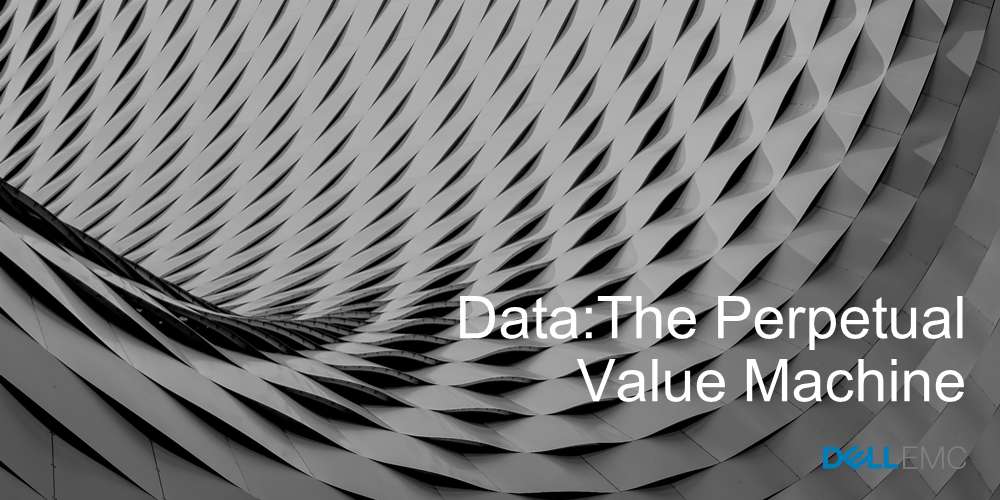
A new idea has taken hold: data is the new oil. This concept misses the mark as data unlike oil doesn’t depreciate or deplete with use. In fact, it expands in its worth as it is collected and used. Which is why it just might be the most valuable asset a company owns.
In a sense it is a perpetual value machine.
Data Doesn’t Depreciate
Data doesn’t suffer from inflation. The more data you have, the better it works, no single data point becomes less significant by having more of them. Data works inversely with how we see the traditional world of resources like oil. If you can process and analyze it then hoarding data makes all the sense in the world.
 If you look at the way healthcare organizations are starting to plan around wearables and IoT, you get a great example just why it doesn’t depreciate. They see the ability to gather point in time data as critical to preventative care going forward. Both the frequency in which they can poll the device as well as the historical records are important for care providers in administering care.
If you look at the way healthcare organizations are starting to plan around wearables and IoT, you get a great example just why it doesn’t depreciate. They see the ability to gather point in time data as critical to preventative care going forward. Both the frequency in which they can poll the device as well as the historical records are important for care providers in administering care.
Consider someone with high blood pressure. By continuously monitoring heart rate and other vitals and cross-referencing patient activity, a doctor can more accurately manage the patient. Provide prescriptive guidance without a physical presence and allowing the patient to take a more active role in their care.
Data Doesn’t Deplete
When you use a piece of data to answer one question that doesn’t invalidate its use for another. Back to the oil analogy the minute if I burn oil to power something or turn it into plastic its usage has become fixed and finite. The digital world doesn’t play by these rules. In fact, there is a virtue in using the same data set to solve a great many problems as it creates consistency in the answers.
 Look at the security camera footage of retailers, typically it is deleted every 72 hours, and serves only is useful for loss prevention. If they were to take that data and apply machine learning to it just how valuable would that data become?
Look at the security camera footage of retailers, typically it is deleted every 72 hours, and serves only is useful for loss prevention. If they were to take that data and apply machine learning to it just how valuable would that data become?
Using data for more use cases only increase its value. Imagine if a firm like Sears had kept all this surveillance video and leveraged it for business insights, they would enjoy a better market position today. In-store advertising, product placement, seasonality, optimal employee staffing levels; these are just some of the competitive advantages Sears might have enjoyed.
It’s Not Without Cost
While the data itself offers endless possibilities, there are corresponding expenses. Infrastructure costs can be challenging to account for especially as unstructured data continues to grow exponentially. Then there is the analytics infrastructure required to reduce the time to insights which can be a major budget hurdle. Finally, the human costs are significant as data scientists, economists, and statisticians are hard to find and command a premium salary.
For all these reasons its critical that organizations should focus their digital transformation around high-value opportunities and challenges that are readily achievable.
Thoughtfulness in the Data Platform Decision will Unlock Value
Often organizations prioritize the application or the target device in their decision tree, but this can lead to problems on the backend in how to collect, store, and make use of the data. If the wrong platform is selected it can mean; additional cost overhead for infrastructure, having to wait on analytics and create time-consuming workflows that stand between your specialists and the answers.
There is a need to begin asking more questions sooner about what data is important and what do you want to do with it. Failure to do so and you risk not retaining it and hurting the business.
Data is the differentiator for a modern business. The endless value potential is there, but first, you must solve how you will collect and extract it. Having a data platform that doesn’t impose boundaries, and delivers the flexibility to consume data as the business need requires is essential to success.